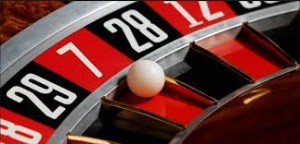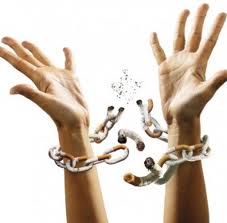
When someone’s gambling gets out of control, it can be extremely destructive and devastating both to the person who is gambling and the people they associate with. Because a gambling addiction develops over time, a gradual shift to compulsivity and erratic behaviors may escape notice from not only the person who is gambling but their friends and family members as well. The act of gambling does not betoken a gambling addiction. But, there are ways to determine whether certain gambling-related behaviors and activities are characteristic of enjoying a recreational activity or if they indicate that gambling has become a compulsive habit with potentially serious consequences.
It is rare but possible to develop a gambling addiction after the very first gambling experience. Typically, though, problems usually progress gradually. Many people participate in social gambling for years with no problems. More frequent gambling or life stressors can contribute to social gambling becoming serious problem gambling. Most casual gamblers can stop gambling when they have to because of losses; they can set a loss limit and easily follow it. People with a compulsive gambling problem feel strong urges to keep gambling to recoup their lost money. Over time, this issue can become more and more destructive. For many compulsive gamblers, gambling is about the thrill, not about the money. Many begin to take bigger risks and place larger bets to keep getting more of a thrill: This can take a financial toll.
A gambling addiction, unlike many other drug or alcohol addictions, often has no obvious physical signs or symptoms that accompany it, and is referred to as a “hidden illness”. Many people with problematic gambling habits deny that they have a problem. They minimize the problem or refuse to admit that their gambling is out of control. They often gamble in secrecy; not allowing friends and family to know about their behavior. They may lie, keep secrets, sneak around, or completely withdraw socially. They do this to make it difficult for anyone to interfere with or confront them about their detrimental behavior.

Just as substance abuse is characterized by uncontrollable urges to consume a particular substance, which causes negative consequences to the addicted person and to those around them; a gambling addiction is broadly characterized by tendencies to gamble in ways that cause damage to both the person who is gambling and those associated with that person. The urge to gamble can be especially overwhelming during episodes of stress or depression. Gambling may be used as an unhealthy way to cope. A person with a gambling addiction eventually becomes overly focused on gambling and on getting money to gamble.
Differentiating between a gambling hobby and a gambling addiction entails whether or not it affects the person and those associated with him or her. Gambling, like other enjoyments, is a diversion if it is done when time allows and if partaking in it does not interfere with other responsibilities. Gambling becomes problematic if it becomes a preoccupation. If someone is losing time from his or her everyday activities because he or she is gambling or thinking about gambling; spends more time gambling than he or she intended to; is gambling to escape worries or stave off boredom or loneliness; or has spent money he or she needed to pay bills, rent, food, or other expenses; that person most likely has a gambling problem. They might be questioning whether they have a gambling problem. Their friends and family might have expressed concern because they recognized the ways in which that person’s gambling was affecting them before he or she was aware of the situation. The sooner that person seeks help and treatment, the less damage to their finances, relationships, and work that they will have to repair. The first steps to getting well are accepting that they have a progressive illness and to want to get well.
It is possible for some compulsive gamblers to go into remission where they gamble less or not at all. Without professional treatment though, they will usually relapse. It is important to be aware of the signs and symptoms of compulsive gambling and to seek professional help if there is a suspected problem with gambling. The National Council on Problem Gambling, referring to a Harvard study, estimates that 2 million (or 1%) of U.S. adults meet the criteria for compulsive gambling in a given year. Another 4-6 million (or 2-3%) do not meet the full diagnostic criteria for compulsive gambling, but meet at least one of them and are experiencing problems due to their gambling behavior. According to the Diagnostic and Statistical Manual of Mental Disorders (5th diagnosis of gambling disorder is made when someone meets at least four of the following nine criteria in a 12-month period:
1. Tolerance – Needing larger wagers to experience the same “rush” (similar to the “rush” felt by drug users).
2. Withdrawal – Restlessness or irritability when attempting to reduce or cease gambling.
3. Loss of Control – Repeated unsuccessful attempts cut down or stop on his or her own.
4. Preoccupation – Frequent thoughts about gambling experiences; whether past, future, or fantasy.
5. Escape – Gambling to improve mood or escape problems.
6. Chasing – Trying to win back gambling losses with more gambling.
7. Lying – Hiding the extent of the behavior by lying to friends, family, or a therapist.
8. Risked a Significant Relationship – Gambling despite damaging or losing an important relationship, job, or other significant opportunity.
9. Bailout – Turning to friends, family, or a third party for financial assistance resulting from gambling activities.
A manic episode does not do a better job of explaining the gambling behavior.
Certain things may put someone at greater risk for becoming addicted to gambling. These include other behavior or mood disorders such as substance abuse (alcohol abuse is common), mood (often depression) or personality disorders or attention deficit/hyperactivity disorder (ADHD); age (younger and middle-aged); sex (men) (women usually start later in life and tend to have depression, anxiety or bipolar disorder and can addicted quicker, although these differences are disappearing; family influence (having a parent with a gambling problem increases your chances); certain medications such as those which treat Parkinson’s disease and restless leg syndrome (RLS), called dopamine agonists, have a rare side effect that results in compulsive behaviors, including gambling; certain personality characteristics like being highly competitive, a workaholic, restless or easily bored.
A helpful screening tool is available online from Gamblers Anonymous (www.gamblersanonymous.org). They have 20 yes/no questions known as “20 Questions: Are you a compulsive gambler?” which anyone can answer and get results on the spot, talk to someone immediately, or learn where there are nearby meetings.
Atlantic City used to be the second-largest gambling location until a few years ago. It now trails behind Nevada and Pennsylvania. The city started 2014 with 12 casinos but will have 8 by summer’s end. Its revenue in 2013 was nearly half of what it was in 2006, when it was at its peak. Atlantic City’s decline is blamed on more gambling halls opening in the northeastern United States; stagnant population growth [in Atlantic City] coupled with persistent high poverty and unemployment; failure to diversify the marketplace with other types of business; a reduction in the number of union employees with pensions and extra money to spend and; state and local regulations that restricted casino construction to Atlantic City and required onerous (and expensive) conditions for licensure. In contrast, Pennsylvania surpassed New Jersey’s total casino revenue in November 2011 after beating them in one type of gambling earlier in the year. The upward trend continued, with Pennsylvania besting New Jersey in combined gambling revenue for 2012 and 2013. Overall, Pennsylvania’s slots experienced a slight decline in 2013 compared with 2012 but, some individual types of gaming (e.g. casino, table games) experienced increases. A Pennsylvania gaming control spokesperson blamed the loss on competition from neighboring states and revenue projections made in advance of these casinos opening. A consultant hired by the Pennsylvania legislature concluded that Philadelphia can accommodate an additional casino. Pennsylvania does not have Atlantic City’s strict regulatory requirements and has gaming spread out in different parts of the state; some towns, like Philadelphia, have a vibrant cultural array, shopping, and a sparkling diversity to offer visitors.